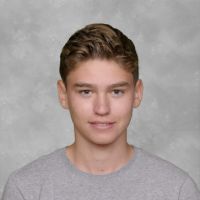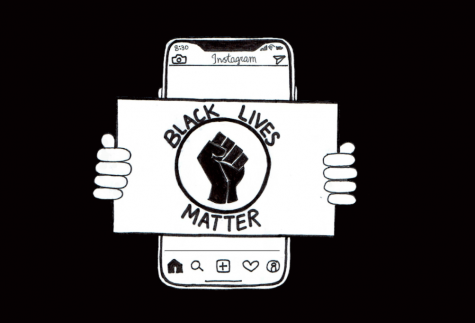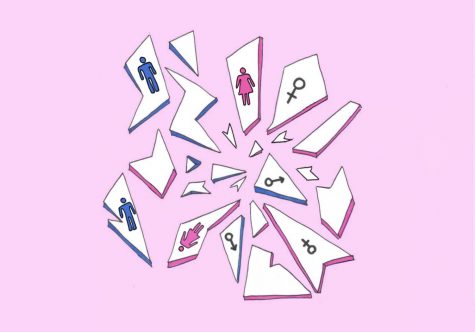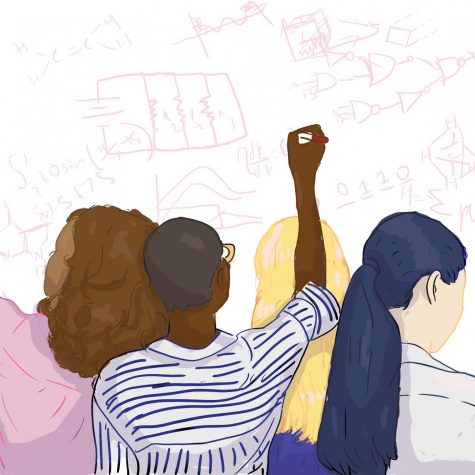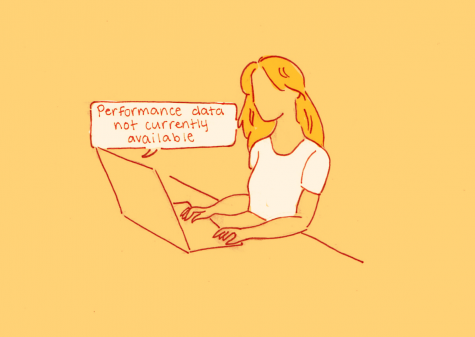D&I is Inherently Political
Disclosure: I am both a registered Democrat and a member of the Diversity and Inclusion group.
The Diversity and Inclusion group (D&I) is inherently political. To be clear at the outset, I do not disagree with the principles or work of D&I. Yet, I firmly contest its assertion that it is nonpolitical. To make such a claim is disingenuous and ultimately works against the group’s mission. When somebody contends that what they believe is dogma, that it is fundamentally true for everyone, they leave no room for nuance. They push away and alienate the very people they are trying to persuade. “My way or the highway” is a lonely path, and one D&I ought not to be walking if it sincerely hopes to convince others of its values.

In the last issue of this newspaper, three representatives of D&I wrote a letter to the editor. They made three claims.
They would have you believe that the group is apolitical because its values are universal: “Diversity and Inclusion is an apolitical organization that seeks to promote social, not political, issues which speak to our collective humanity.”
They would have you believe that they empower marginalized voices: “the group strives to create a space for voices that have been silenced or muted in the past” and “the D&I group creates a platform for the perspectives and voices of non-dominant groups.”
They would finally have you believe that the issues they deal with are de facto nonpolitical: “It is our belief, as well as those of the members of the D&I group, that issues that affect social interactions within our community, such as race, sexuality, gender, or socioeconomic status (and more), transcend national politics.”
None of these claims are true. The work of D&I is not remotely close to being universally accepted. In 2016, Donald Trump, a candidate firmly aligned against the fundamental principles of D&I, received nearly 63 million votes. Granted, not all those voters are against diversity and inclusion or the policies those words have come to represent, but 63 million is still a colossal swath of the American public that specifically chose to support an anti-diversity candidate.
It is abundantly clear that the values of D&I are not universal, or even anywhere close to it. The authors of the letter may believe that the social issues D&I promotes “speak to our collective humanity,” but I’m not sure the collective of humanity would agree. In fact, one doesn’t even need to look at something concrete like voter statistics to come to this conclusion. If the values of D&I were so fundamental, why would the group have to publish a letter making such a claim? Or, why would the group exist at all? The assertion of “collective humanity” does not stand.
Next, the letter mentioned how the group creates a platform for non-dominant voices. Let us ask ourselves: what voices are really silenced at Groton? Can anyone legitimately say that the perspectives of historical minorities are not welcomed on campus with open arms and open ears? Who, exactly, is D&I creating a platform for? Entities like GSA, Groton Feminists, ICAP, Cultural Alliance, and the multitude of other affinity groups dominate extracurricular life. Multiple times per year, the entire community is mandated to attend workshops and lectures designed around diversity. D&I and its basic premises and policies have been stapled to this institution’s mission statement.
Perhaps the closest thing is a small contingent of conservative students who represent a dwindling, muted minority in and of themselves. D&I is very effective; it has amplified a great many voices. Perhaps, if it seems to be running out, it should look towards the one area of diversity it has consistently ignored: political perspective.
Lastly, they claim that issues of identity are inherently nonpolitical, citing race, gender, sexuality, and socioeconomic status as examples. But politics has become almost nothing but issues of identity. Bernie Sanders’ entire platform is based on divisions in socioeconomic status. Elizabeth Warren and Amy Klobuchar have repeatedly used their gender to score points. Joe Biden and Michael Bloomberg’s differing approaches to race have become flashpoints of the primaries. On the other side of the aisle, issues of identity are consistently used to drive wedges, rally support, and inform policy positions. The assertion that identity “transcends national politics” itself transcends reality.
Ultimately, the recent attitude of D&I and their letter to the editor have done no good. There are no fundamental truths in this world, and claiming that something deeply political is really an issue of “collective humanity” implies that those who disagree are less than human. It is regressive and directly hinders D&I’s mission. If the group truly wants to create a fully inclusive community, it must recognize its own political nature and the fact that it is really nothing more than one more special interest vying for attention in a crowded market.


